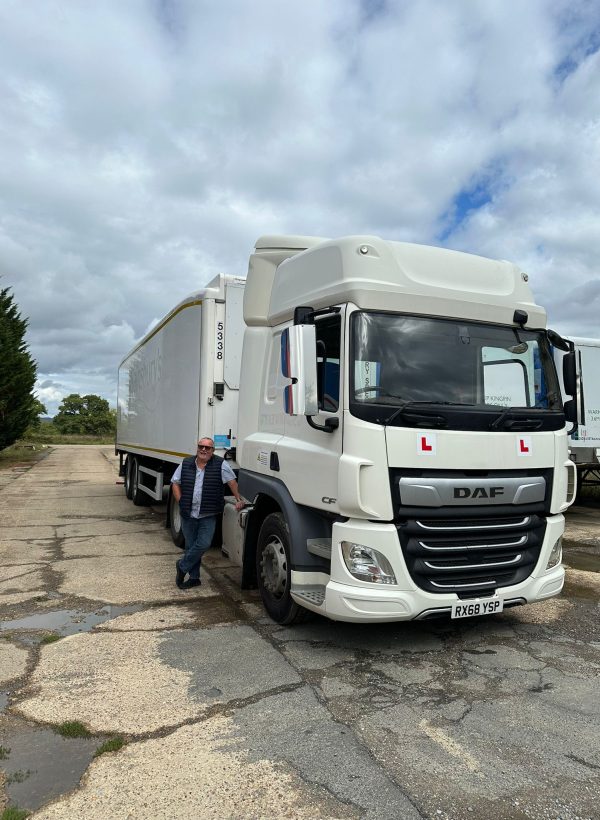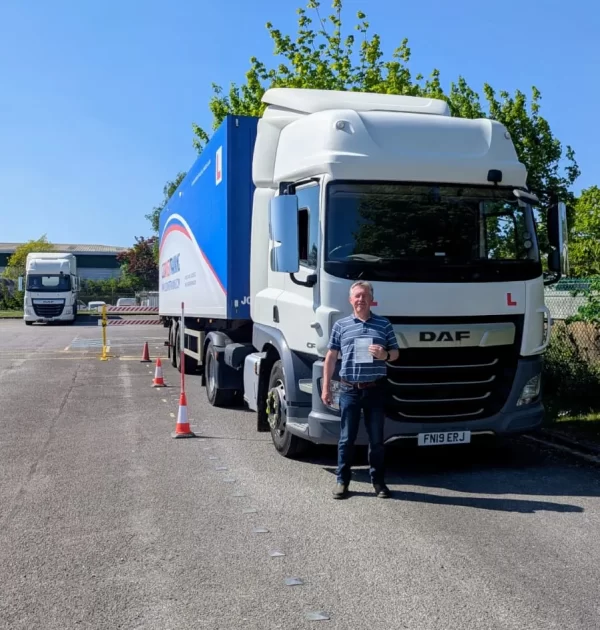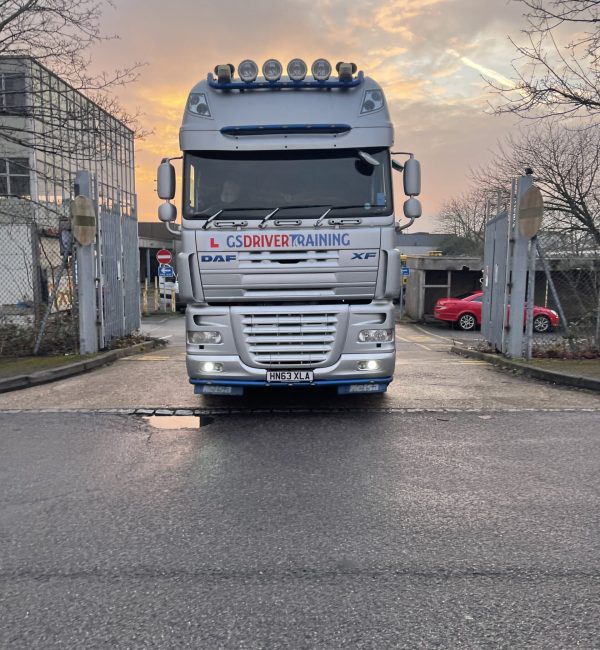Gain Valuable skills with HGV driver Training in West Sussex
Start your job search for HGV driver positions in West Sussex. With your valuable skills, you’ll be well-prepared to embark on a successful career in the transportation industry.
Following this guide, you can gain valuable skills through HGV drivertraining in West Sussex and open up opportunities in this in-demand field. Best of luck with yourHGV driver training journey!
Understand the Importance of HGV Driver Training
Recognise that HGV driver course is essential for anyone pursuing a career as an HGV driver. It provides the skills and knowledge required to operate heavy goods vehicles safely and within the law.
Research Local Training Providers
Begin by researching local driving schools and training providers in West Sussex that offer HGV driver training. Look for reputable ones with experienced instructors and a good track record.
Determine Your HGV Category
Decide which category of HGV licence you want to obtain. Category C (Rigid) and Category C+E (Articulated) are the two main categories. Your choice will depend on your career goals.
Enrol in a Training Course
Contact your chosen training provider and enrol in the HGV training course that suits your needs. Ensure that the course covers both theory and practical training.
Theory Test Preparation
Prepare for the theory test covering essential HGV operation and road safety knowledge. Use official DVSA resources and practice tests to prepare effectively.
Practical Training
Attend the practical training sessions. These sessions will teach you how to operate HGVs, including vehicle handling, safety procedures, and on-road skills.
Vehicle Familiarisation
Spend time getting familiar with the HGV you'll use during your training. Understanding the vehicle's controls and features is crucial.
Mock Tests and Practice
Take advantage of mock tests and practice sessions offered by your training provider. These help you assess your progress and readiness for the practical test.
Practical Test
Book your practical test through the official DVSA website when you feel prepared. On test day, arrive early and ensure you have all required documents.
Pass the Test
If you pass the practical test, you'll have gained valuable skills and a valid HGV licence. You are now ready to start your career as an HGV driver.
Continuous Learning and Advancement
The learning continues after obtaining your licence. Consider further training or certifications, such as ADR (Hazardous Goods) or HIAB (Lorry-Mounted Crane), to expand your skill set and job opportunities.
Driver CPC training in West Sussex
If you’re looking for Driver CPC (Certificate of Professional Competence) training in West Sussex, here’s a guide to help you find the proper training and understand the requirements:What is Driver CPC Training?
Driver CPC training is mandatory for professional HGV and PCV (passenger-carrying vehicle) drivers. It’s designed to enhance safety and professionalism in the industry.
Research Training Providers: Start by researching training providers in West Sussex that offer Driver CPC courses. Look for reputable providers with experienced instructors.
Choose the Right Course Select the Driver CPC course that suits your needs. These courses are divided into the Initial Driver CPC and the Periodic Driver CPC. Ensure you choose the appropriate one based on your situation.
Initial Driver CPC: If you’re a new driver or haven’t completed the Initial Driver CPC, you must attend a 35-hour training course and pass the theory and practical tests.
Periodic Driver CPC: For experienced drivers, the Periodic Driver CPC involves completing 35 hours of training every five years to maintain your qualification.
Course Content: Driver CPC courses cover various topics, including road safety, regulations, health and safety, and professional driving skills.
Course Schedule: Check the training provider’s course schedule and select a time that fits your availability. These courses are typically conducted over a few days.
Pass the Test: After completing the training, you’ll need to pass the required tests to obtain or renew your Driver CPC qualification.
Renewal: Remember that the Periodic Driver CPC needs to be renewed every five years to continue working as a professional driver.
Financial Assistance: In some cases, financial assistance or funding may be available for Driver CPC training. Check with local authorities, job centres, or potential employers for information on available schemes.
Enroll in a Course: Contact a reputable training provider in West Sussex and enrol in a suitable Driver CPC course. They will guide you through enrollment and provide details on available courses.
C1 Training in West Sussex
Understand C1 Training
C1 training is designed for individuals who want to drive medium-sized goods vehicles. This category includes vehicles between 3,500kg and 7,500kg. To drive such vehicles, you’ll need to obtain a C1 driving licence.Find a Local Training Provider
Begin by searching for local driving schools or training providers in West Sussex that offer C1 training. Look for those with experience in providing C1 driver training.
Pre-Requisites
Check the eligibility requirements for C1 training, such as age and the type of driving licence you currently hold. In most cases, you'll need a regular car driving licence (Category B) before starting C1 training.
Enroll in a C1 Training Course
Contact your chosen training provider and enroll in a C1 training course. Ensure the course covers both theory and practical training.
Theory Test Preparation
Prepare for the theory test, which covers essential knowledge about operating medium goods vehicles and road safety. Use official DVSA resources and practice tests to prepare effectively.
Practical Training
Attend the practical training sessions. These sessions will teach you how to operate C1 vehicles, including vehicle handling, safety procedures, and on-road skills.
Vehicle Familiarization
Spend time getting familiar with the C1 vehicle you'll be using during your training. Understanding the vehicle's controls and features is essential.

Mock Tests and Practice
Utilize mock tests and practice sessions offered by your training provider to assess your progress and readiness for the practical test.
Practical Test
Book your practical test through the official DVSA website when you feel prepared. On test day, arrive early, and ensure you have all required documents.
Obtain Your C1 Licence
If you pass the practical test, you'll obtain your C1 driving licence, allowing you to legally drive medium goods vehicles in West Sussex and beyond.
Job Opportunities
With a C1 licence, you can explore job opportunities as a driver of medium-sized goods vehicles. These may include roles in delivery, transportation, or specialized services.
Continuing Education
Consider further training or certifications to enhance your skills and job prospects in the field. By following this guide, you can successfully complete C1 training in West Sussex and gain the necessary skills to drive medium goods vehicles.
Different Types of HGV Licences: Find the Right One for You
In the UK, there are several types of HGV (Heavy Goods Vehicle) licences, each allowing you to operate vehicles of different sizes and weights. These licences are categorized based on the type of vehicle and its weight. Here are the main types of HGV licences:Category C1 (7.5 Tonnes)
This licence allows you to drive rigid vehicles weighing between 3.5 and 7.5 tonnes. It’s commonly used for smaller delivery trucks and vans.Category C (Rigid)
With this licence, you can drive rigid vehicles weighing over 3.5 tonnes. It's suitable for driving larger lorries and goods vehicles.
Category C+E (Articulated)
This licence enables you to drive articulated or drawbar combination vehicles. It's required for operating the largest and heaviest HGVs.
Category C1+E (7.5 Tonnes + Trailer)
This licence combines the Category C1 and Category E, allowing you to drive a Category C1 vehicle with a trailer. It's commonly used for medium-sized trucks with trailers.
Category D1 (Minibus)
While not strictly an HGV licence, it's worth mentioning that a Category D1 licence is required to drive a minibus with 9 to 16 passenger seats.
Category D1+E (Minibus with Trailer)
This licence allows you to drive a Category D1 minibus with a trailer, expanding your capacity to carry passengers and cargo.
Category D (Bus)
Similar to HGV licences, Category D is for driving buses with more than 8 passenger seats. It's necessary for professional bus drivers.
Category D+E (Bus with Trailer)
This licence permits you to operate buses with trailers, typically used for larger bus services.
The specific HGV licence you need depends on the type of vehicle you plan to operate. It's important to choose the right licence category and undergo the required training and testing to ensure you are legally qualified to drive your chosen type of HGV.
FAQ
1. What is HGV driver Training in West Sussex?
2. Who Should Consider HGV driver Training in West Sussex?
3. What Are the Different Categories of HGV Licenses in West Sussex?
4. Where Can I Find HGV Driver Training Courses in West Sussex?
5. What Does HGV Driver Training Include?
6. What Does HGV Driver Training Include?
7. What Does HGV Driver Training Include?
8. What Does HGV Driver Training Include?
9. What Does HGV Driver Training Include?
- How Can I Enroll in HGV driver Training in West Sussex?
Indeed, here’s an FAQ (Frequently Asked Questions) section related to Driver CPC training, HGV, and PCV training.
10. What Does HGV Driver Training Include?
11. What Are the Costs for Driver CPC Training?
12. What Types of HGV Licences Are Available?
13. Are There PCV Training Courses Available?
14. What Does LGV Driver Training Entail?
15. What Are the Different HGV Training Courses Available?
16. Is PCV Driver Training Offered in West Sussex?
17. How Can I Enroll in HGV Training Courses?
18. What Are the Costs Associated with PCV Driver Training?
19. Do I Need to Pass Tests for Driver CPC Training?
Certainly, here are three frequently asked questions (FAQ) related to HGV driver training in West Sussex and licence training costs.
